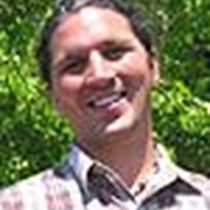Georgia Strait and Quadra Island, British Columbia
It was early. Too early. We were all asleep and dreaming of sunshine and camera clicks. Then a noise intruded upon our collective consciousness. A persistent noise. It was accompanied by words. “Wake up,” it said. It sounded disturbingly like our Expedition Leader, Ralph. “Pacific white-sided dolphins all around the ship,” it said. It was real. It was a dream. It was both. We opened our cabin doors, we looked out our windows. Blue-black 5:30 a.m. light fell on the glistening backs of dolphins leaping, breathing, splashing, being. Their beautiful lines, their permanent smiles, their grace and power. All around us. Intruding into our dreams. Becoming our reality.
The sun came up. Light streaked through clouds. Dolphins streaked through shutters that could only close for 1/20th of a second. The Captain steered for composition. An acrobatic twister danced off the starboard and into two young boys’ hearts and cameras. Batteries died, eyes weakened, ISO speeds shifted, smiles imprinted themselves on our faces and would not go away. An hour later we retreated to our rooms to sift through pixels and rejoin dimly remembered dreams.
The noise returned. It told us to go to breakfast. We obeyed. The noise returned again. It said “Forget breakfast, we have orcas.” We obeyed. We were given twenty minutes. Twenty minutes before we had to slip northward through the narrows of Seymour, racing time and tide and the gigatons of water destined for Georgia Strait. We clicked, focused, clicked and whooped. The orcas played chicken with the ship, veering off to pass within ten yards of starboard. Radios hummed and logistics flew. Satellite-connected voices conferred. The voice returned: “There’s been a change of plans. We’re going to stay with these Orcas all day and go north tomorrow. So, go have breakfast!” We feasted on salmon lox and watched black and white behemoths feast on salmon sushi outside our windows. Five hours and wellover 10,000 photos, a dozen breaches, and innumerable fluke slaps later we turned away. Our hearts, souls and memory cards were full and our faces were red from the relentless onslaught of mammals and sunshine. Time for lunch and mandatory naps.
The day seemed to stretch forever in the most pleasant way possible. Naturalist Lindy Hopkins presented a moving and spirit-provoking snapshot of the culture and lifestyles of Pacific Northwest First Nations peoples. The Sea Bird crew presented a rainbow of kayaks on the beach at Rebecca Spit Marine Park on Quadra Island, British Columbia, Canada. It all ended with crème brulé and a silly song. I’ll let the chorus say the rest…“So lift your camera’s high – There’s no rest for your weak squinty eyes!If you have to take a break, then you better make it quick‘Cause the killer whales are coming, I can see their telltale slick!"
It was early. Too early. We were all asleep and dreaming of sunshine and camera clicks. Then a noise intruded upon our collective consciousness. A persistent noise. It was accompanied by words. “Wake up,” it said. It sounded disturbingly like our Expedition Leader, Ralph. “Pacific white-sided dolphins all around the ship,” it said. It was real. It was a dream. It was both. We opened our cabin doors, we looked out our windows. Blue-black 5:30 a.m. light fell on the glistening backs of dolphins leaping, breathing, splashing, being. Their beautiful lines, their permanent smiles, their grace and power. All around us. Intruding into our dreams. Becoming our reality.
The sun came up. Light streaked through clouds. Dolphins streaked through shutters that could only close for 1/20th of a second. The Captain steered for composition. An acrobatic twister danced off the starboard and into two young boys’ hearts and cameras. Batteries died, eyes weakened, ISO speeds shifted, smiles imprinted themselves on our faces and would not go away. An hour later we retreated to our rooms to sift through pixels and rejoin dimly remembered dreams.
The noise returned. It told us to go to breakfast. We obeyed. The noise returned again. It said “Forget breakfast, we have orcas.” We obeyed. We were given twenty minutes. Twenty minutes before we had to slip northward through the narrows of Seymour, racing time and tide and the gigatons of water destined for Georgia Strait. We clicked, focused, clicked and whooped. The orcas played chicken with the ship, veering off to pass within ten yards of starboard. Radios hummed and logistics flew. Satellite-connected voices conferred. The voice returned: “There’s been a change of plans. We’re going to stay with these Orcas all day and go north tomorrow. So, go have breakfast!” We feasted on salmon lox and watched black and white behemoths feast on salmon sushi outside our windows. Five hours and wellover 10,000 photos, a dozen breaches, and innumerable fluke slaps later we turned away. Our hearts, souls and memory cards were full and our faces were red from the relentless onslaught of mammals and sunshine. Time for lunch and mandatory naps.
The day seemed to stretch forever in the most pleasant way possible. Naturalist Lindy Hopkins presented a moving and spirit-provoking snapshot of the culture and lifestyles of Pacific Northwest First Nations peoples. The Sea Bird crew presented a rainbow of kayaks on the beach at Rebecca Spit Marine Park on Quadra Island, British Columbia, Canada. It all ended with crème brulé and a silly song. I’ll let the chorus say the rest…“So lift your camera’s high – There’s no rest for your weak squinty eyes!If you have to take a break, then you better make it quick‘Cause the killer whales are coming, I can see their telltale slick!"




